Judges select IGOTY finalists
IGOTY stands for “International Grower of the Year” and it’s as big a deal as it sounds. Organized by the International Association of Horticultural Producers, the awards with be presented at a gala dinner during IPM Essen in late January. The just-announced finalists are:
- Anthura (Netherlands)
- BellaRosa (Ecuador)
- Citrina Sales BV (Netherlands)
- Danziger Guatemala (Israel)
- Hangzhou Huazhiyun Agriculture Investment Co. Ltd. (China)
- Hasfarm Holdings Ltd. (Hong Kong)
- Kernock Park Plants Ltd. (UK)
- LVG Plants (Pty) Ltd. (South Africa)
- Miao Fu Holdings Co. Ltd. (China)
- Oserian Development Co. Ltd. (Kenya)
IGOTY 2020 consists of four categories: finished plants and trees, cut flowers and bulbs, young plants and sustainability. Within each category, bronze, silver and gold awards will be given. One overall winner will be awarded the “Gold Rose” and crowned International Grower of the Year 2020 (I’ll once again be the dapper, bowtied chap pulling the names from the envelopes).
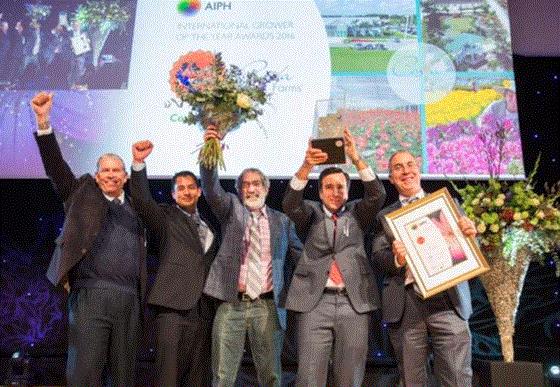
It’s a shame there’s not a business from North America on that list. But we’ve been well represented in past years, with a Gold Rose win by Florida’s Costa Farms (2016, above), a Young Plant Gold and Finished Plant Silver by Canada’s Van Belle Nursery (2018), and a Gold Rose win by Canada’s Sheridan Nurseries (2013).
I should mention that the earlybird discount for tickets and corporate hospitality packages end December 1, so head on over to http://aiph.org/igoty2020 and reserve your spots for the industry's biggest event!

In Texas: Ruibals
Retail grower Ruibal's Plants of Texas has four Dallas retail locations served by one production facility, which I dropped in on last Tuesday. Second-generation owner Matt Ruibal gave me the lowdown on the business, which his dad started in 1984, reselling bedding plants out of a stall at the Dallas farmers market. Over time, they went from the market to their own land across the street to picking up more locations around the city.
To feed their growing retail demand, they bought this abandoned nursery in 1993. They grew 8,000 flats of pansies their first season (and thought it was a lot!). Now they do about 10,000 a day—275,000 pansy flats for the fall, Matt told me. A bit less than half goes to their own retail outlets; the rest goes to landscapers.
The founders, Mike and Linda, are still active in the business. Matt’s brother Mark manages retail. Matt has a son running one of their retail locations, and there are about eight more third-generation Ruibals who are welcome to join them.
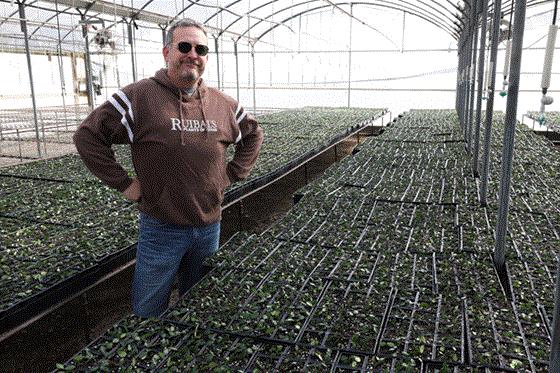 Matt Ruibal with some groundcover jasmine.
Matt Ruibal with some groundcover jasmine.
As for Matt’s three kids, “I would love it [if they came into the business]. I want them to figure out what makes them happy. Like my mom told me, ‘You don’t have to work for us, but you always have a job here.’ With me and my brother being second generation, we’re looking for that third generation to take it over in 20 years or whenever.”

Meet head grower Kevin Chretian
For my greenhouse tour, Matt turned me over to Kevin Chretian, Ruibal’s new (18 months) head grower. Kevin is a smart young dude, with a master’s in hort from Texas A&M. His job? Make production even better. “They said, ‘Here you go.' They trusted that I could do something for them.”
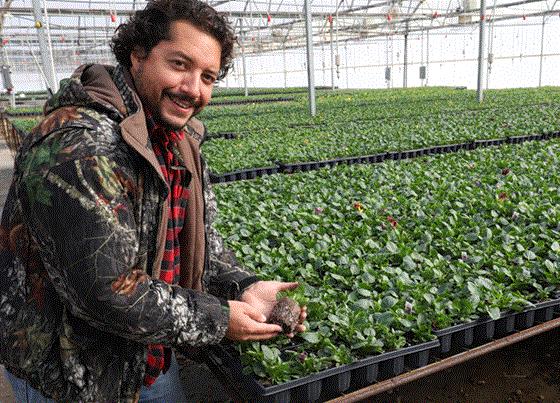 Kevin shows off their pansies, grown exclusively in Ellepots.
Kevin shows off their pansies, grown exclusively in Ellepots.
One of Kevin’s major initiatives is bringing some of their plug production in-house. He’s invested in a Blackmore sowing line, built a new germination chamber and has even built some LED-equipped germination racks (below).
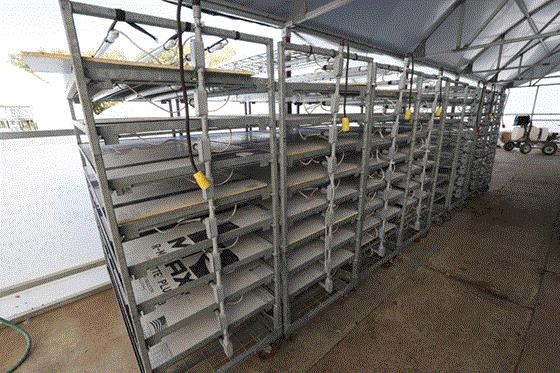
As you heard from Matt’s remark about pansy flat numbers, it’s a big crop for them. What I found interesting is they grow almost all their annuals in Ellepots, which they first started using five years ago. “Takes a lot of plastic out of the landfills,” he says.
They sell them at retail, too, for $1.50 each, and have cardboard boxes and empty flats available for customers who don’t want a full flat or want to mix and match. I asked how customers reacted to the odd new plant form.
“There was a little bit of pushback in the beginning because they didn’t know what it was,” Matt said. “There was actually more from the landscapers, understanding how to use it. Some were so used to taking the plastic pot off and loosening up the roots a little bit … they were wanting to do the same thing with the Ellepot.”

In memoriam: Marty Orban
Third-generation nurseryman Marty Orban of Orban’s Nursery in Bradenton, Florida, passed away November 6 after a long battle with lung cancer. He was just 67.

Marty was born into a horticulture family that started with a florist shop in Cleveland, Ohio. Marty’s father, Bill, began growing poinsettias in the 1940s and moved the family to Bradenton in 1952. Marty graduated from the University of Florida with a horticulture degree and took over the family business in 1975, operating it until 2016 when he passed it along to the fourth generation, his son, Tyler.
Few growers have stuck with poinsettias as long as Marty. It remains their signature crop, with more than 250,000 plants sold through Publix, fundraisers and other Florida outlets. Orban’s has hosted a public poinsettia open house for 29 years; this year’s event, scheduled for November 30, will celebrate and honor Marty with fundraising for Lungevity, a leading private provider of research funding for lung cancer.
HERE is a nice piece about Orban’s by the local news.
I don’t think I ever met Marty, but my wife did: Just before graduating from UF in 1993, she and her floriculture class, led by Dr. Terril Nell, did a tour of some Florida growers, including Orban’s. She brought me back an Orban’s poinsettia t-shirt, which I may still have somewhere. I’ll have to dig it out in Marty’s honor.

Why not grow edible roses?
With food, flowers, fashion and high-end dining all so popular, we should give more consideration to edible flowers.

Danish rose breeder Roses Forever has launched “Gourmet Roses,” a line of miniature roses that can be easily grown organically, which makes them perfect for culinary use—the petals, whole flowers or buds. They can be used as edible decorations or as ingredients.
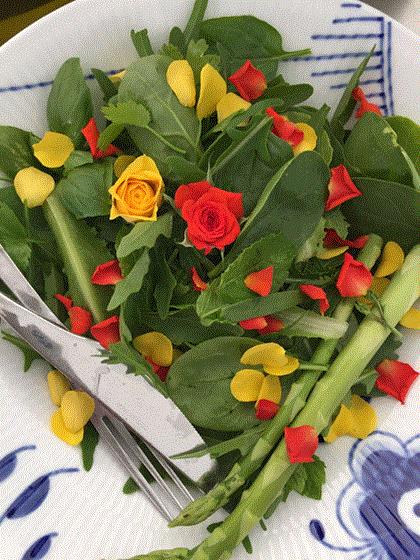
At least one Danish nursery has introduced them to Scandinavian restaurants with great success, says Roses Forever. And at least one cut rose grower in the Netherlands is adding Gourmet Roses to their offering. They’ve even been brewed into a beer!
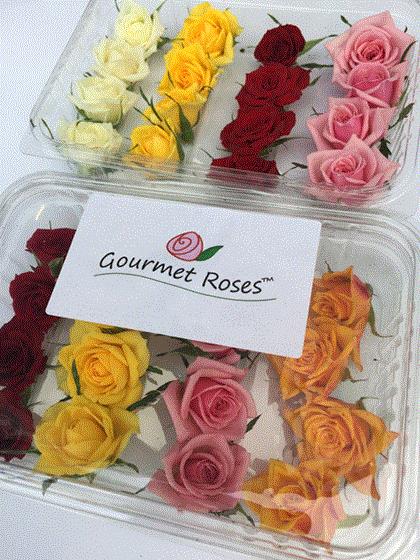
The challenge is adapting to new customer segments, including restaurants and grocery stores, and having to grow without chemical sprays.
Interested in making taking on a whole new edible crop? Roses Forever is looking for exclusive licensees. Email Rosa Eskelund, re@roses-forever.com.
Finally …
If there is any brand in horticulture more loved than Felco, I don’t know what it is. People are passionate about their Felco #2 secateurs the same way they are about their dogs, their cats and maybe even their kids (the real enthusiasts even use the term “secateur”). A Felco tattoo is as much the mark of a hardcore gardener as an Ironman logo is of an endurance athlete. I’ve never gone that far, but I do own two pair, including an unusual Felco 16 lefty model … but I found I’ve used the right-handed #2s for so long, I like them better. I’ve also got a Felco cap I only wear on special occasions.
All this is to set up how smart it is of the 75-year-old Swiss company to offer free replacements for the estimated 3,000 folks who got saddled with fake Felcos they unknowingly purchased on Amazon. The situation unfolded around the holidays of 2018, with customers reporting dissatisfaction with the quality of the Felcos they were receiving. Turns out they were Asian knockoffs. Here’s a description of the real deal and the counterfeits:
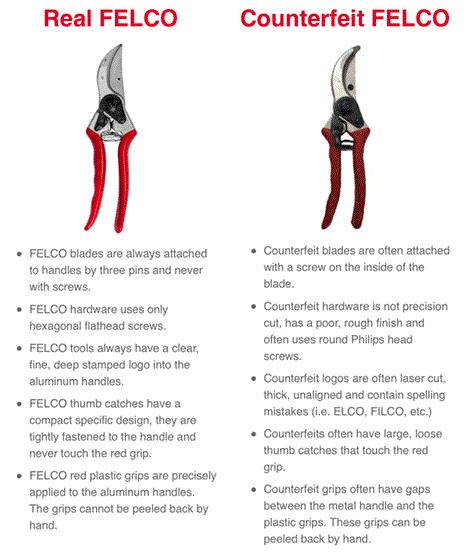
Felco has launched the website www.realfelco.com where scammed customers can get info about sending in the counterfeits in exchange for the real deal.
Well played, Felco!
So beware: If you spot some #2s at a price that seems too good to be true … it probably is.







Have a happy Thanksgiving!

Chris Beytes
Editor
GrowerTalks and Green Profit
This e-mail received by 21,413 loyal readers!
Thanks to my loyal sponsors, who help me reach the 21,413 readers of Acres Online in 66 countries. Want to be one of them (a sponsor, that is)? Give Paul Black a shout and he'll hook you up.